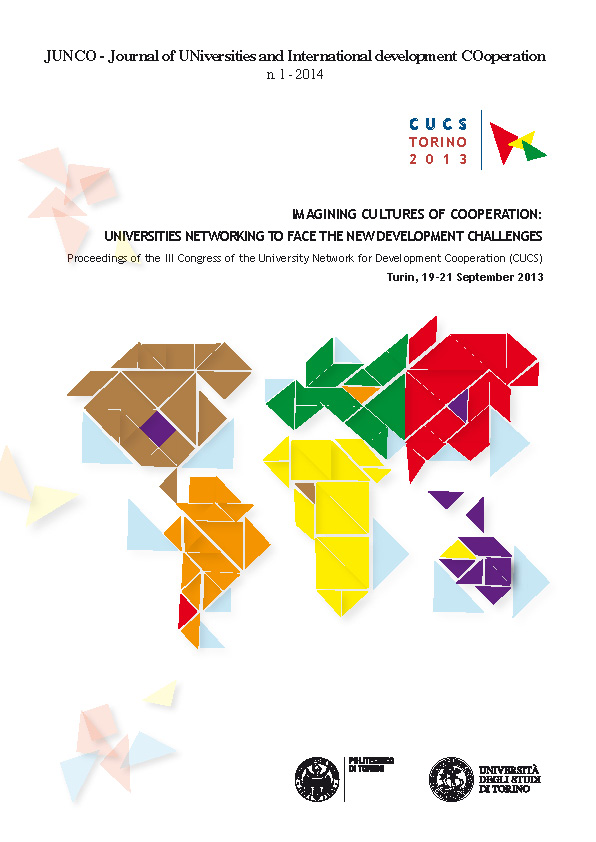DEVELOPMENT COOPERATION AND INTERNATIONALIZATION OF UNIVERSITIES
DOI :
https://doi.org/10.13135/2531-8772/539Résumé
This panel arises from the need to share experiences of integrating international development cooperation in the strategic process of internationalization of universities in all their functions: their teaching, learning and research policies and in the organization of services and administration. The internationalization process, which most universities are embarking on as no longer avoidable, provide them with the opportunity to acquire the tools and the attitudes essential to ward off an otherwise inevitable loss of relevance in contemporary societies. Internationalizing the university through both “cross-border” mobility of students and faculty, and changes to curricula, means integrating the international, intercultural and global dimensions in their central functions (research, training and services) in order to transform society. To gain a broad perspective, an uncommon sensitivity and a high capacity of inter-cultural and trans- national communication is needed not only for teachers but also for the culture of the institution. The end product of such an approach should be the development of a “global perspective” that will lead to the emergence of professionals / citizens of the world. The “global citizen” is one who sees the world and its inhabitants as interdependent and works to promote both his own interests and those of the most disadvantaged populations, anywhere on the planet. Equipped with the appropriate tools, those who leave the university can contribute to the best achievements in their professional role within the community, at home as well as abroad.


